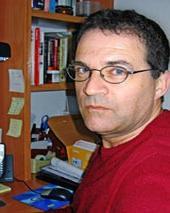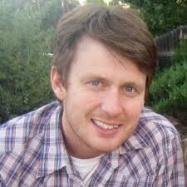Workshops
Skip to content Skip to main navigation
The 35th Second Language Research Forum (SLRF 2016)
If a Job's Worth Doing, It's Worth Doing Twice: The Science of L2 Replication Research
(Pre-Conference Workshop, September 22, 2016, 10:00AM-1:00PM)
 |
Dr. Graeme Porte University of Granada Website: http://www.ugr.es/~gporte/ |
Abstract
|
The construction of scientific knowledge is traditionally a slow, piecemeal, collective process as more and more researchers compare their own observations of the natural world with those of others. Progress is then achieved by continually refining one’s interpretations and conclusions in the light of others’ ideas and observations. Such a recursive approach to experimental research also demands we continually look around and behind us to re-visit previous assumptions and outcomes. Against this background, replicating a study becomes a desirable, as well as routine, process which encourages us to repeat it in such a way that we can be reasonably certain that the results of the two experiments can then be compared. By participating in a group of researchers who are all approaching the same problem from different angles and revisiting each other’s work, SLA research then becomes a more piecemeal, but ideally self-correcting and rewarding, enterprise. We are now witnessing a vociferous backlash against the lack of replication in the social sciences, highlighting the potentially harmful consequences for a number of fields, including our own. The need for critical address of previous empirical findings and the theory evolving from them, together with their ensuing application in teaching approaches and materials has now risen to a level of urgency. Replication research in SLA – or talking about it at least - has suddenly become fashionable. Now it’s time to do some! This talk and workshop focuses on the importance of replicating research in SLA research and introduces practical suggestions for selecting, executing and publishing a first replication study. |
Biography
|
Graeme Porte, editor of the Cambridge University Press publication Language Teaching, is Senior Lecturer in L2 English and applied linguistics research design at the University of Granada. His current interests include replication research in applied linguistics. Graeme Porte created, and manages, the "Journal Editors" forum, which currently includes the participation of editors from more than 20 international applied linguistics journals. He is a member of the Executive Editorial Board of Annual Review of Applied Linguistics (CUP). He is a senior examiner for the International Baccalaureate Diploma programme in English. His combined text and workbook, now in its 2nd Edition, on how to go about critically analyzing applied linguistics research (Appraising Research in Second Language Learning) is a set book or recommended reading on over 80 applied linguistics courses worldwide. 2012 saw the publication of his major new book in the Cambridge University Press applied linguistics series. Replication Research in Applied Linguistics is a ground-breaking volume and still unique in the field of social sciences. He has recently been commissioned to write a textbook for Taylor & Francis/Routledge for postgraduates on how to set up, manage and publish an applied linguistics replication study. |
Applying Meta-Analysis in Instructed L2 Research
(Post-Conference Workshop, September 25, 2016, 10:00AM-1:00PM)
 |
Dr. Luke Plonsky Georgetown University Website: https://lukeplonsky.wordpress.com/ Email: l.plonsky@ucl.ac.uk |
Abstract
|
Research synthesis and meta-analysis (RS/MA) comprise a set of procedures for conducting comprehensive reviews of previous research. RS/MA also present a number of advantages over traditional narrative reviews, namely (a) greater systematicity and, therefore, (b) increased objectivity as well as (c) transparency. Consequently, and following widespread use in fields such as education, psychology, and medicine, the use of meta-analytic techniques has grown dramatically in recent years in applied linguistics and particularly in instructed second language acquisition (ISLA; Norris & Ortega, 2010; Oswald & Plonsky, 2010). Meta-analysis has been applied to shed light on several subdomains of ISLA such as the effects of instruction on grammar (Norris & Ortega, 2000), vocabulary (Won, 2008), pragmatics (Jeon & Kaya, 2006), and pronunciation (Lee, Jang, & Plonsky), among many other areas (e.g., interaction, feedback, working memory, motivation, aptitude, CALL, test format effects, strategy instruction, reading comprehension). In an effort to build on as well as contribute to the momentum in this area, this workshop will provide participants with an introduction to RS/MA that is both conceptual and procedural (hands on). I will begin by explicating a rationale for the synthetic approach at the primary as well as secondary levels of research. The discussion will then move to a more practical discussion of the major stages involved in conducting RSs/MAs. These include: (a) defining the domain and searching for primary literature, (b) developing and implementing a coding scheme, (c) (meta-)analysis, and (d) interpreting results (i.e., effect sizes). At each stage, I describe a number of decision points made by the meta-analyst, which will be illustrated with examples drawn from L2 research. I will also provide sample data and templates for synthetic data collection and analysis. The workshop will not be highly technical, and only a basic knowledge of research methods and statistics will be assumed. |
Biography
|
Luke Plonsky (PhD, Michigan State University) is currently Senior Lecturer of Second Language Acquisition at University College London, where he teaches courses in second language acquisition and quantitative research methods. In the fall of 2016, he will begin a new position in the Department of Linguistics at Georgetown. Recent and forthcoming publications in these areas, many of which apply and discuss synthetic/meta-analytic techniques, can be found in journals such as Annual Review of Applied Linguistics, Applied Linguistics, Language Learning, Modern Language Journal, and Studies in Second Language Acquisition and in edited volumes published by Routledge, Cambridge University Press, Wiley Blackwell, and de Gruyter. Luke has co-authored or edited two books on research methods, both due out in 2015. He is currently preparing a book-length guide to research synthesis and meta-analysis (with John Norris). Luke is Associated Editor of Studies in Second Language Acquisition and Managing Editor of Foreign Language Annals. |
